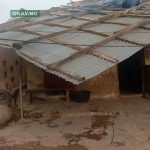igeria must achieve a sustained Gross Domestic Product (GDP) growth rate of approximately 7% to significantly alleviate poverty and improve living standards, according to Wale Edun, Nigeria’s Minister of Finance and Coordinating Minister of the Economy. This ambitious target was unveiled following the 2024 IMF and World Bank Spring Meetings in Washington, D.C.
Edun acknowledged that while Nigeria’s economy is currently growing at an average of 3.4% in 2024, with the latest quarterly figure at 3.84%, this growth is insufficient to address the nation’s pressing poverty challenges. “Unless we get to about 7% growth, we’re not going to substantially reduce poverty and improve the life of Nigerians,” Edun stated, emphasizing, “That is the target and commitment of this administration.”
To reach this goal, the minister outlined key strategies: boosting agricultural productivity, expanding digital infrastructure, supporting young entrepreneurs through e-commerce, and improving access to financing for businesses. Crucial to these efforts are structural reforms, especially within the financial sector. The Central Bank of Nigeria (CBN) is working to remove bottlenecks and enhance capital accessibility for businesses of all sizes.
Strengthening Social Safety Nets
A pivotal aspect of the government’s plan involves strengthening social protection programs for the most vulnerable. Edun explained the administration has revamped the direct benefit transfer (DBT) system to ensure efficiency and transparency. “It is the promise of the President to make sure that the poor and the most vulnerable are not left behind,” he reiterated.
The DBT program now operates on a monthly payment system, with beneficiaries identified through biometric registration linked to their National Identification Number (NIN). Payments are made via bank accounts or mobile wallets, creating a digital trail for verification. Currently, the program covers approximately 1 million individuals, with plans to add 3 million more to the national social register monthly. The register, encompassing around 20 million households, is being expanded and digitized for enhanced accessibility.













